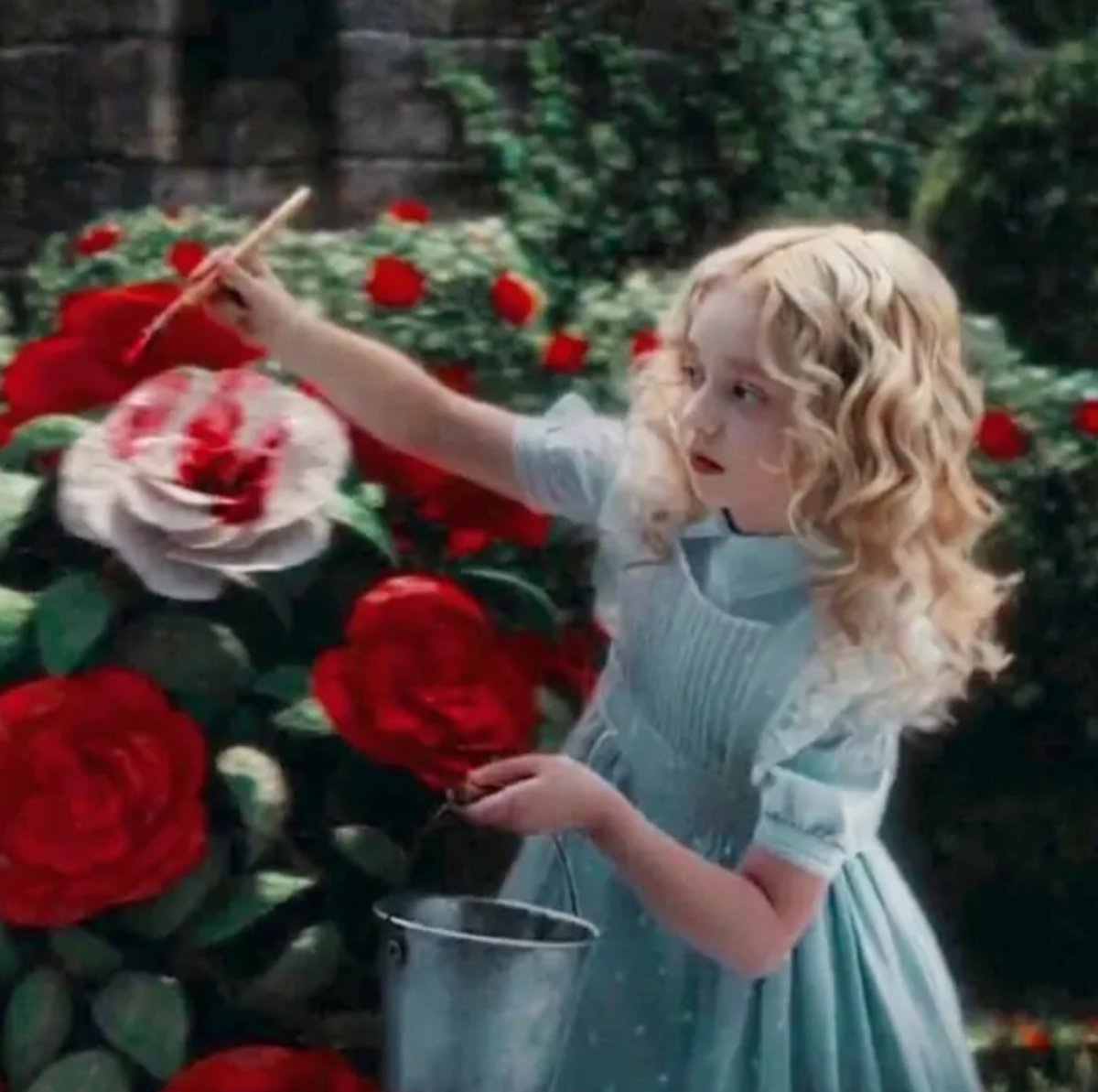Red Queen and her roses

It's time for Alice to return Wonderland again. Upon reaching the garden, she saw Red Queen planting her roses. To show her royalty, Red Queen only want to see red roses instead of white ones, and she questioned Alice on how to get rid of those.
From Alice's knowledge, she know that roses are diploid and the red and white traits of the roses are controlled by a pair of allele genes on the same homologous chromosome, where red is the dominant gene , and white is the recessive gene . That means the red roses have the genotype or , while the white ones have the genotype , and breeding will follow the expected probabilities found by a Punnett square.
Each rose has the possibility of breeding with every other one (including self-crossing), and since it is a sufficiently large population, they will breed at a probability based on the current ratio of the different genotypes. Roses breed only once and then die shortly afterwards. No roses breed across a generation. The fertility and mortality rates of all gametes are proportionally the same.
Initially, on Day , Red Queen planted many red roses in the garden. Unfortunately, the roses she planted all have genotype , so on Day she found many white roses. In order to get pure red roses as quickly as possible, she decided to weed out all white roses at the end of the day, and let the rest of red roses breed with each other. Each generation lasts day, which means the generation is on Day .
To Red Queen's desire, she needs to make sure that in the next generation, the portion of white roses produced is less than . On which Day will her wish come true?
Clarification: For example, if on Day , the portion of white roses produced is less than , then we say on Day , her wish will come true.
Inspiration: Brilliant Butterflies
The answer is 999.
This section requires Javascript.
You are seeing this because something didn't load right. We suggest you, (a) try
refreshing the page, (b) enabling javascript if it is disabled on your browser and,
finally, (c)
loading the
non-javascript version of this page
. We're sorry about the hassle.
Let x n and y n be the proportions of A A and A a red roses present at the end of day n . Then x 0 = 0 and y 0 = 1 , and the proportions of A A , A a and a a roses the next day (before culling) are x ^ n + 1 y ^ n + 1 z ^ n + 1 = x n × x n × 1 + x n × y n × 2 1 + y n × x n × 2 1 + y n × y n × 4 1 = ( x n + 2 1 y n ) 2 = ( 1 − 2 1 y n ) 2 = x n × x n × 0 + x n × y n × 2 1 + y n × x n × 2 1 + y n × y n × 2 1 = x n y n + 2 1 y n 2 = 2 1 y n ( 2 − y n ) = y n × y n × 4 1 = 4 1 y n 2 so that, after culling the a a white roses, we have proportions x n + 1 y n + 1 = 1 − 4 1 y n 2 ( 1 − 2 1 y n ) 2 = 2 + y n 2 − y n = 1 − 4 1 y n 2 2 1 y n ( 2 − y n ) = 2 + y n 2 y n and the Red Queen's dream will come true on Day n when first z ^ n + 1 = 4 1 y n 2 < 1 0 − 6 , and hence when y n < 5 0 0 1 .
Since y n + 1 − 1 = y n − 1 + 2 1 , we deduce that y n − 1 = 1 + 2 1 n , so that y n = n + 2 2 for all n ≥ 0 . Thus the Red Queen's dream will come true on Day n , when first n + 2 2 < 5 0 0 1 , and hence when first n > 9 9 8 , and so the Red Queen's dream comes true on day 9 9 9 .